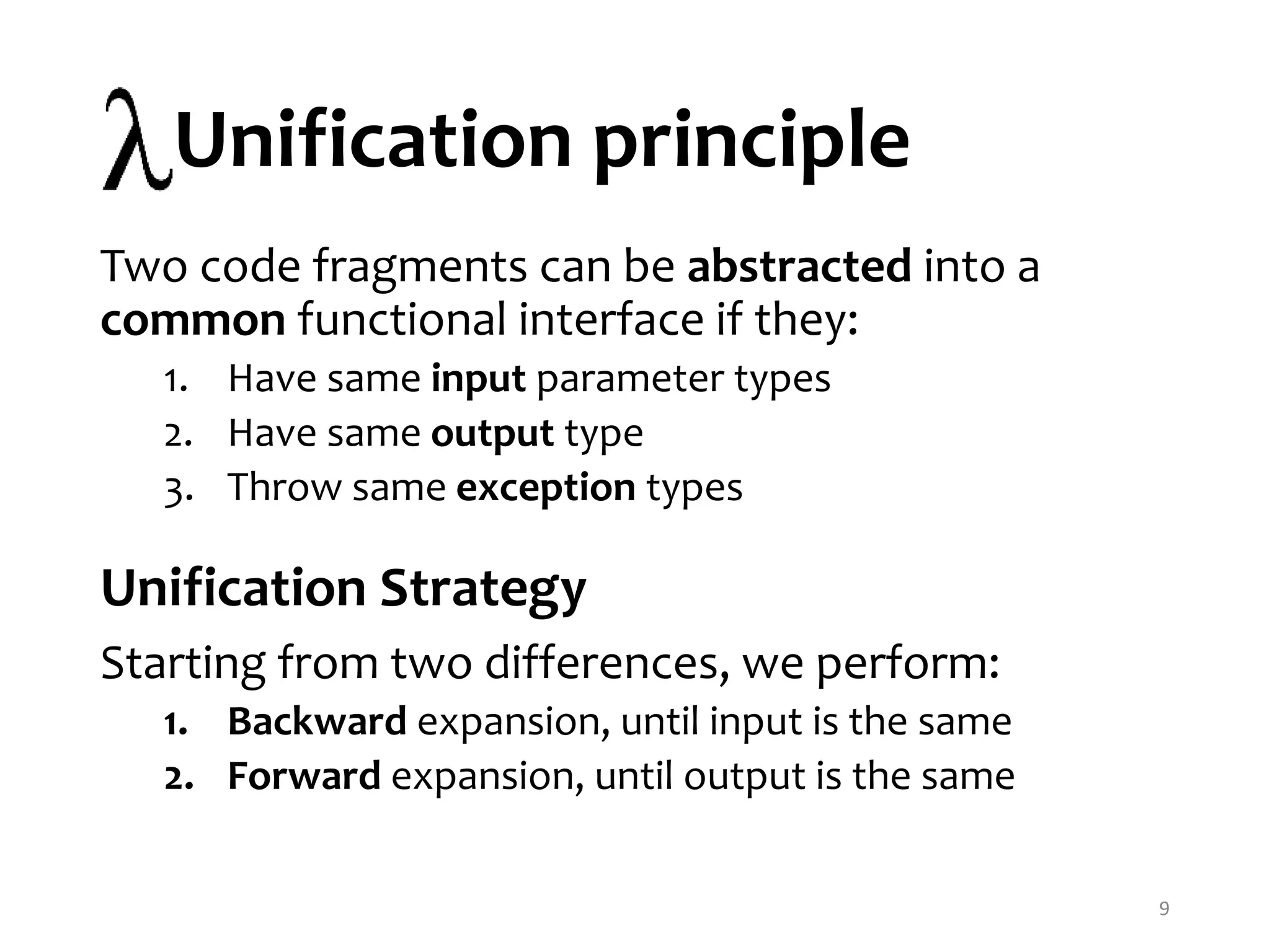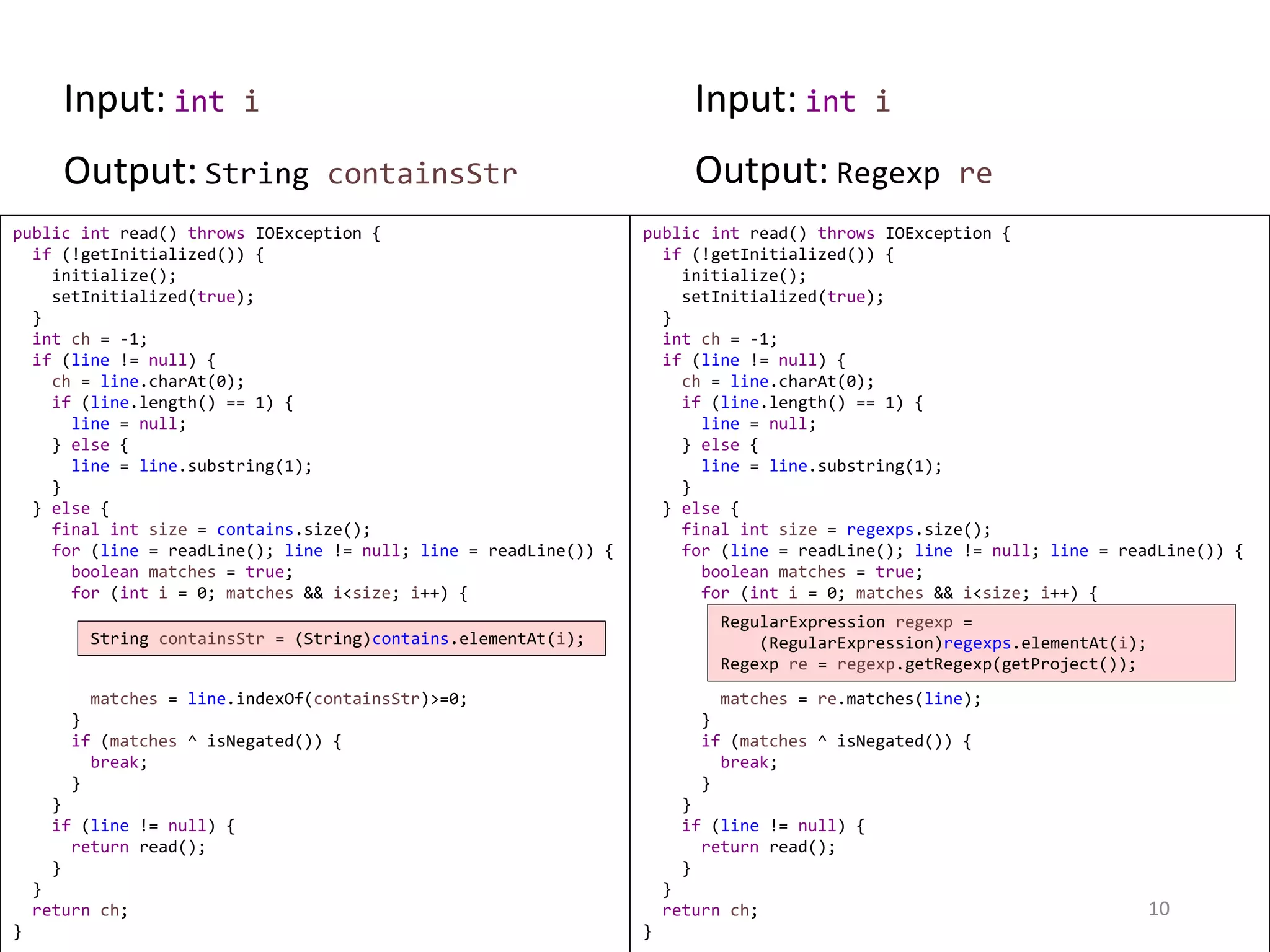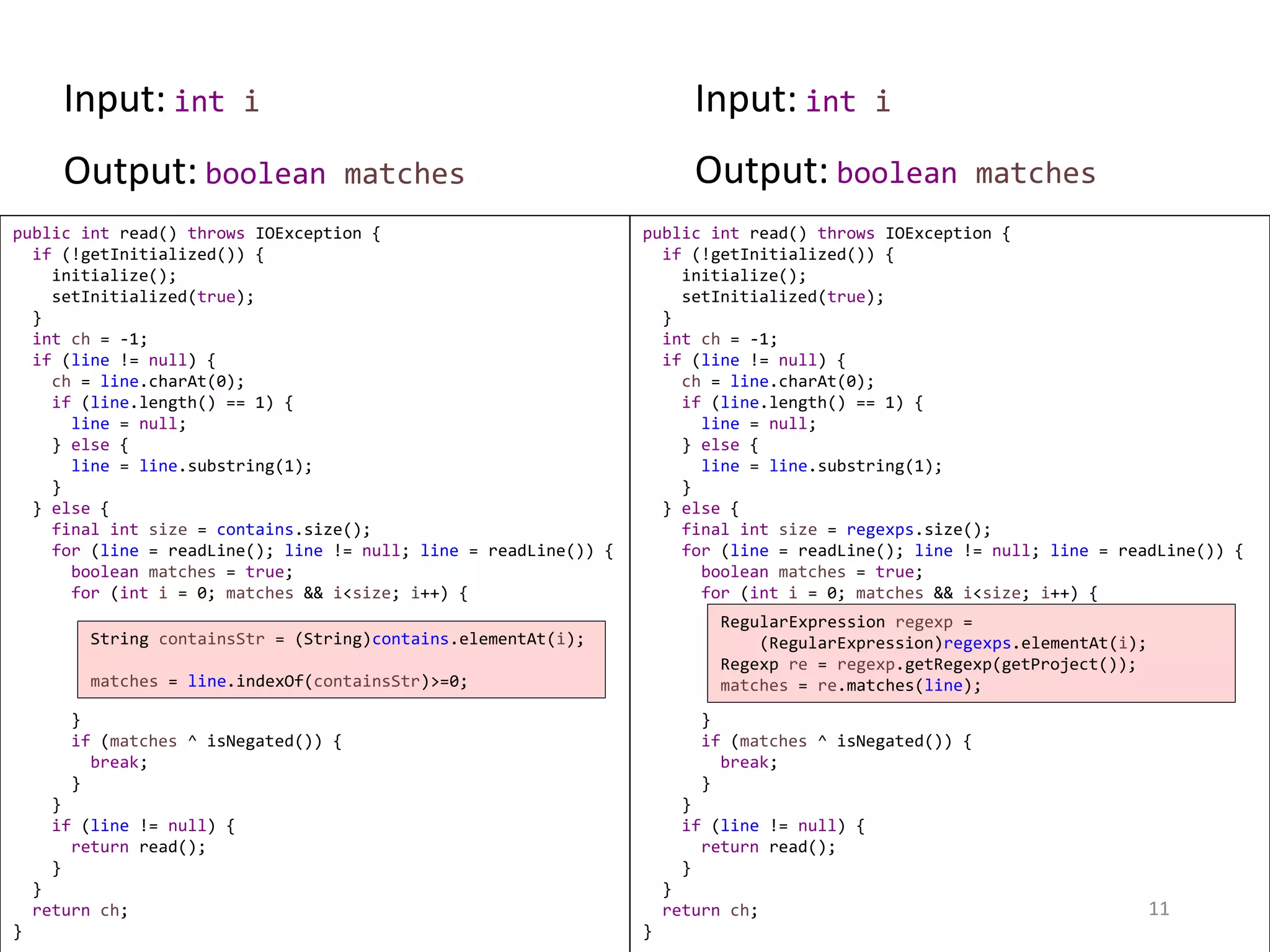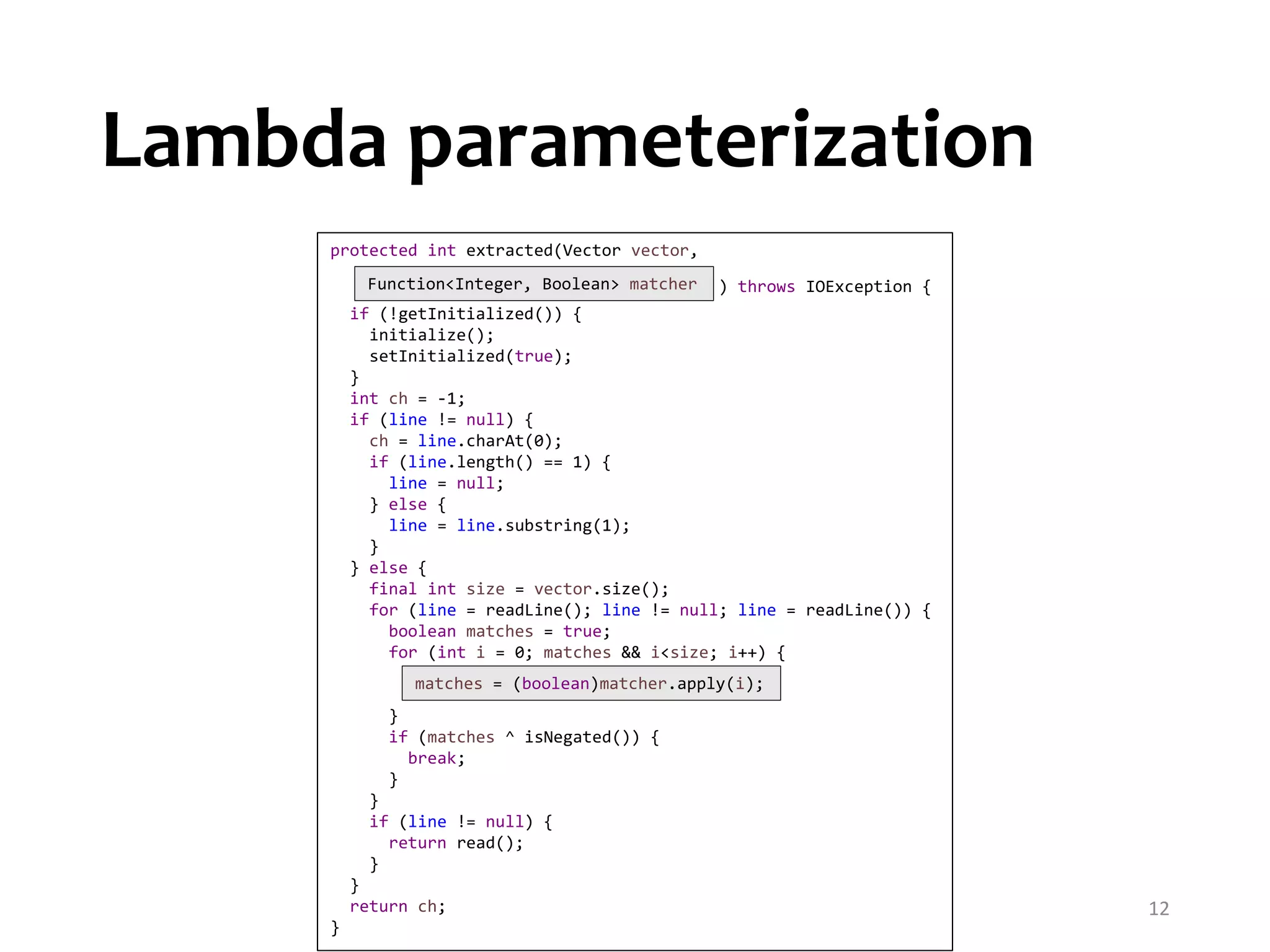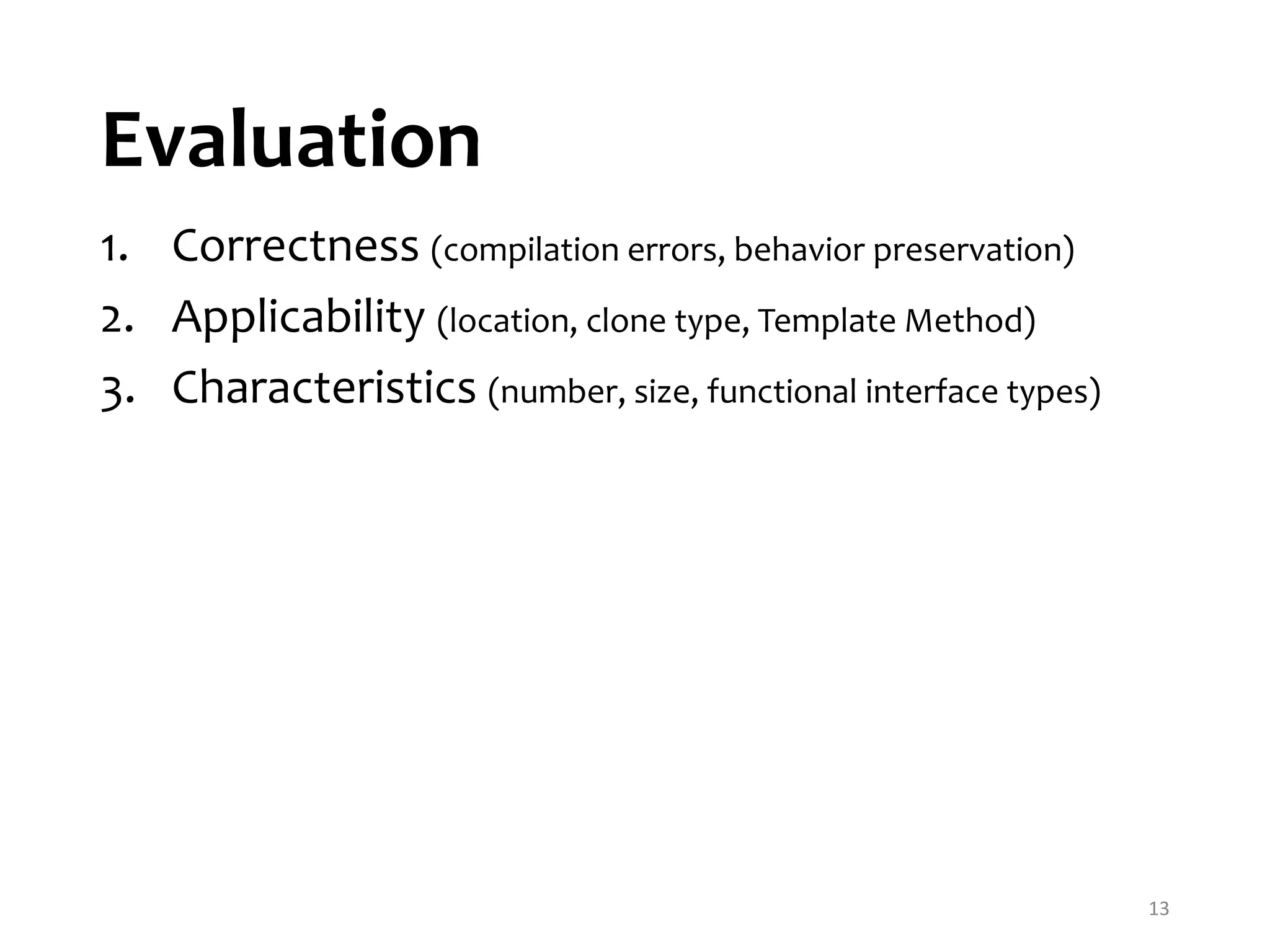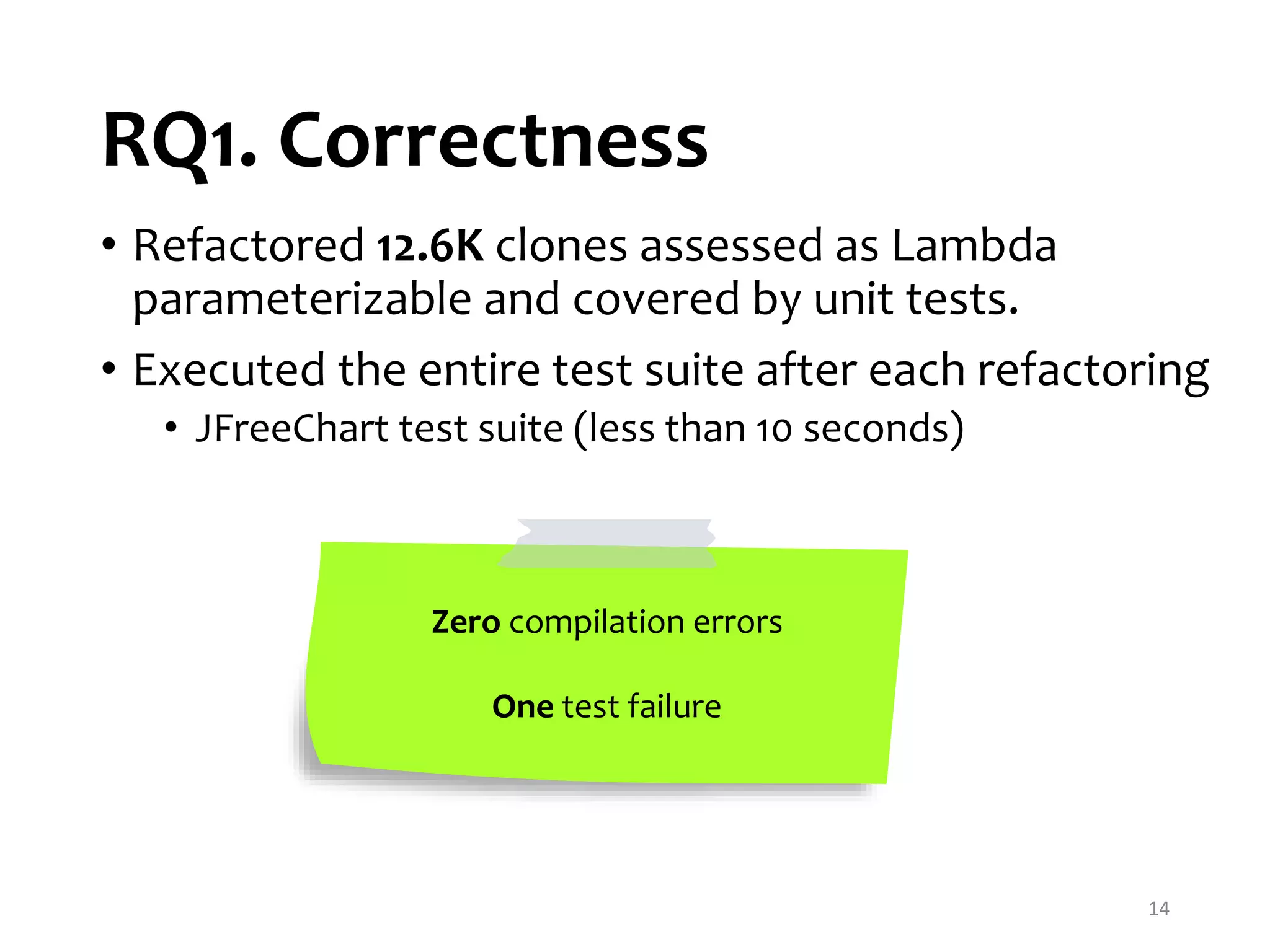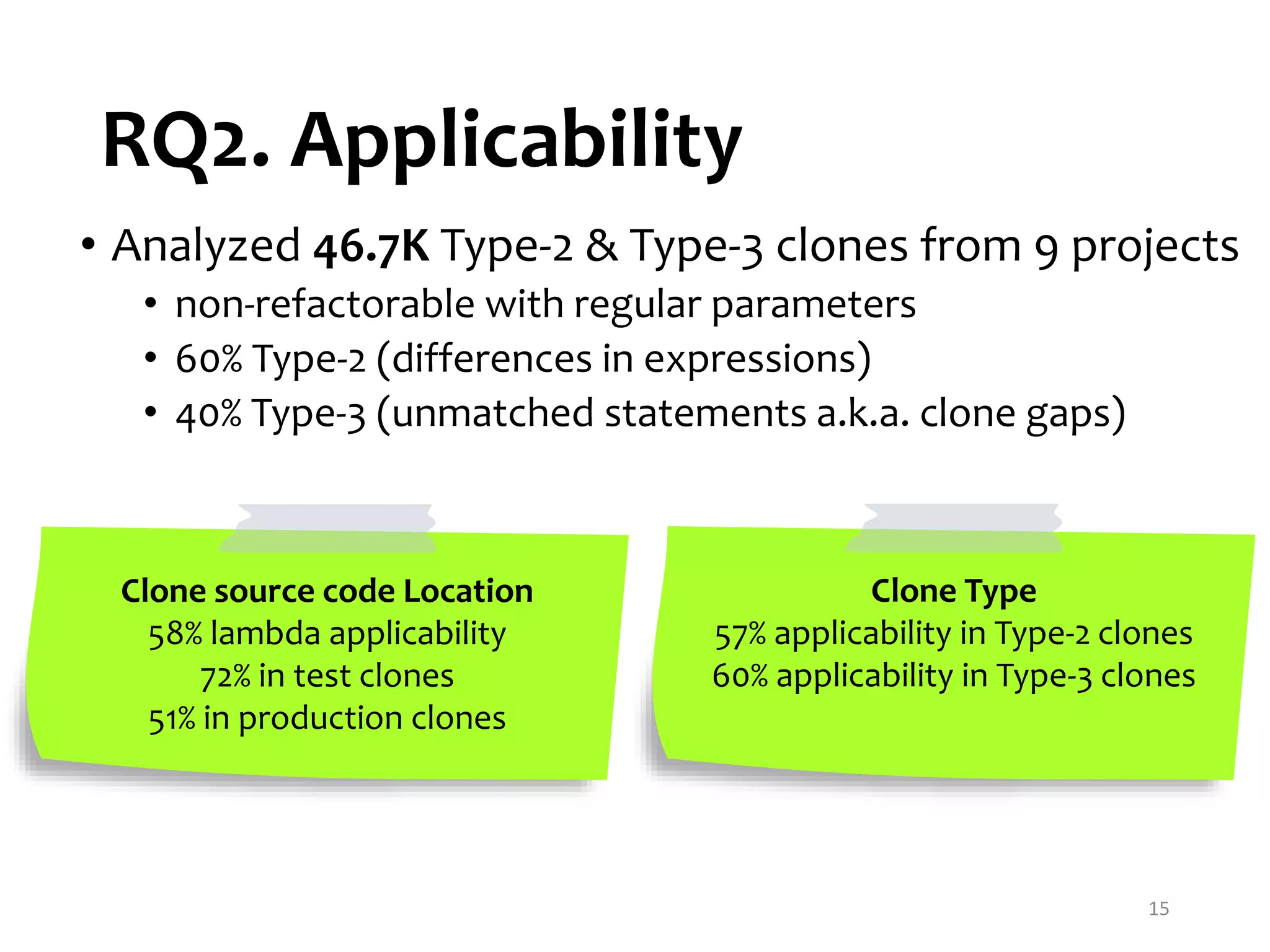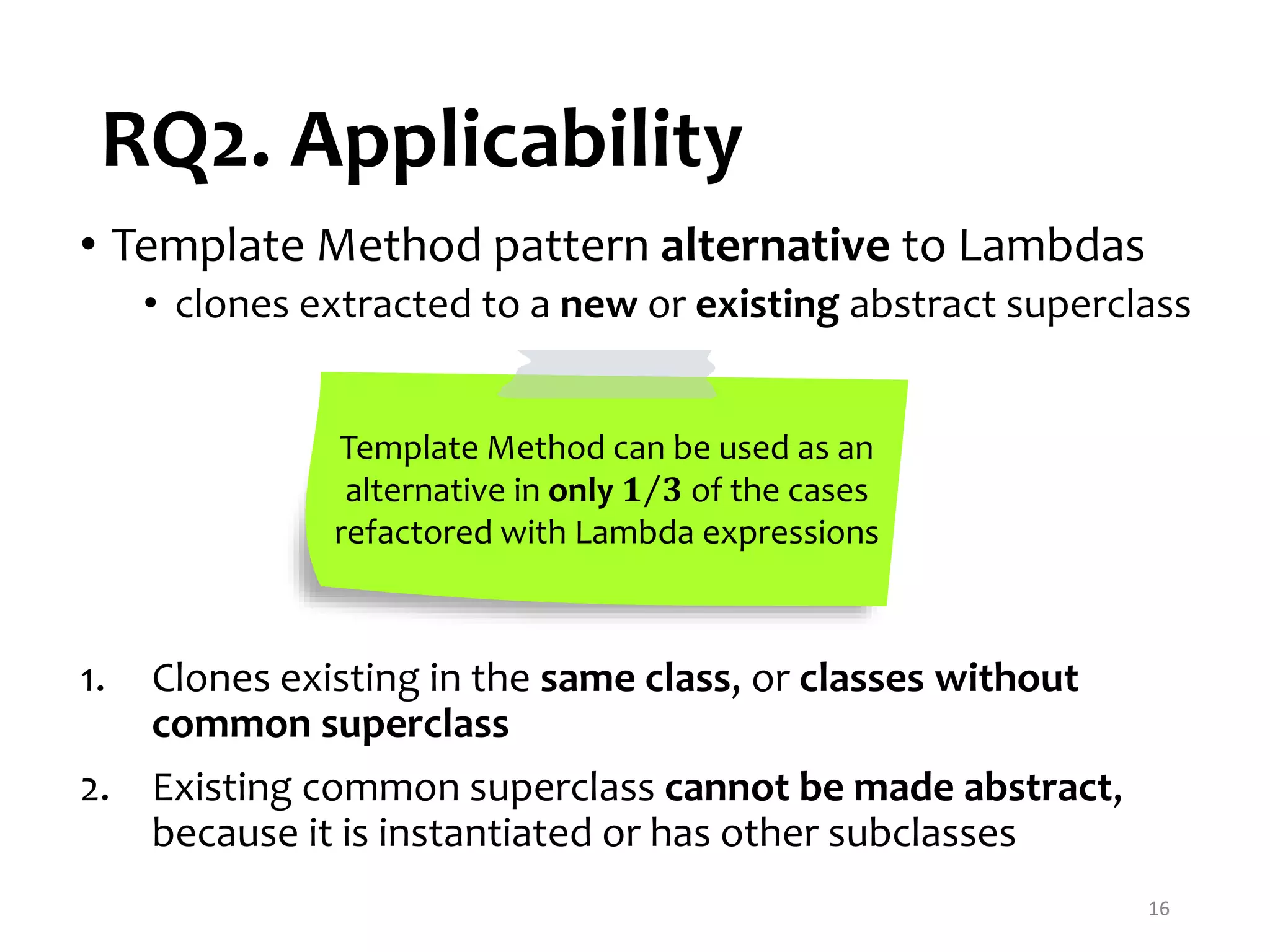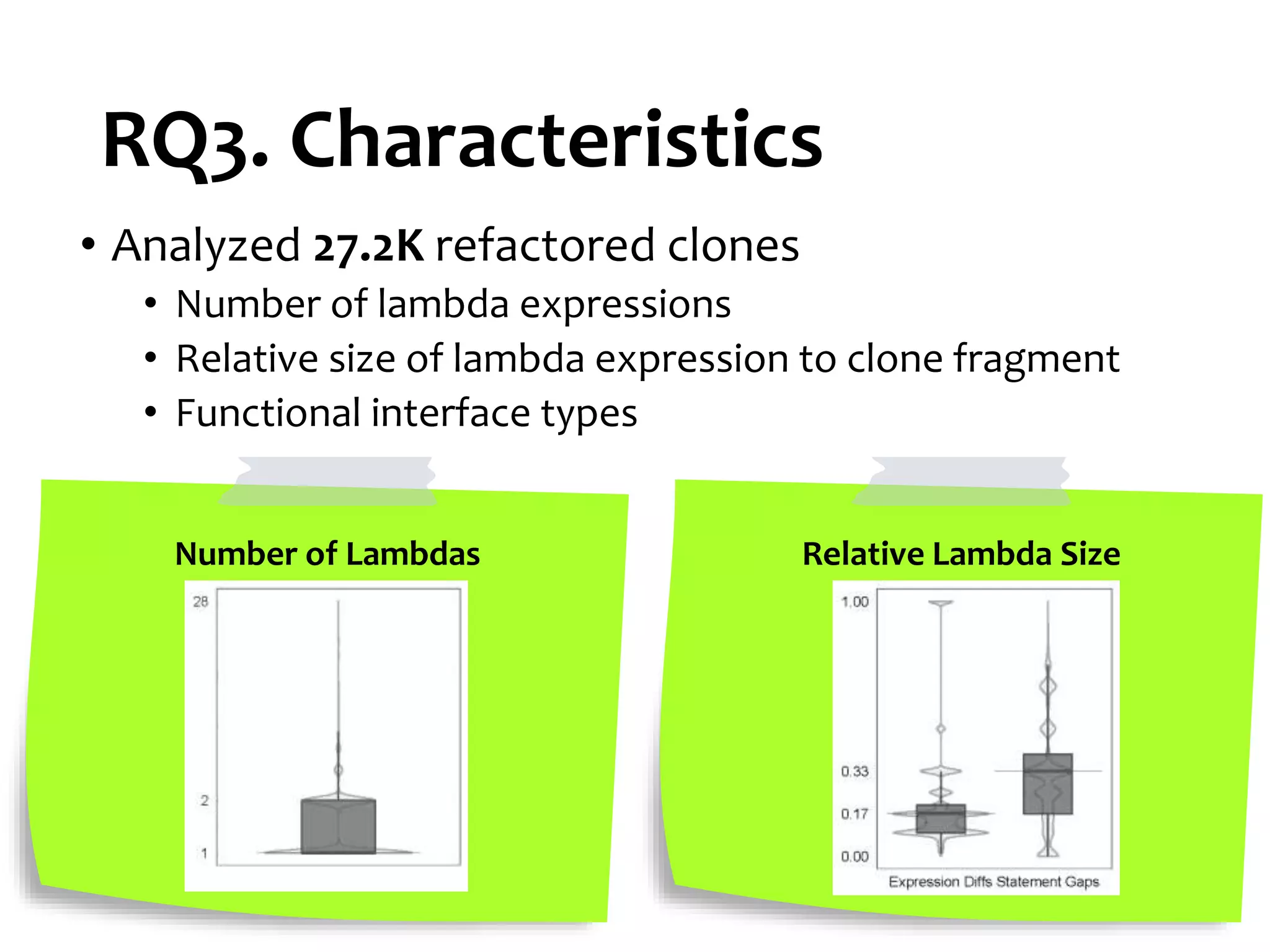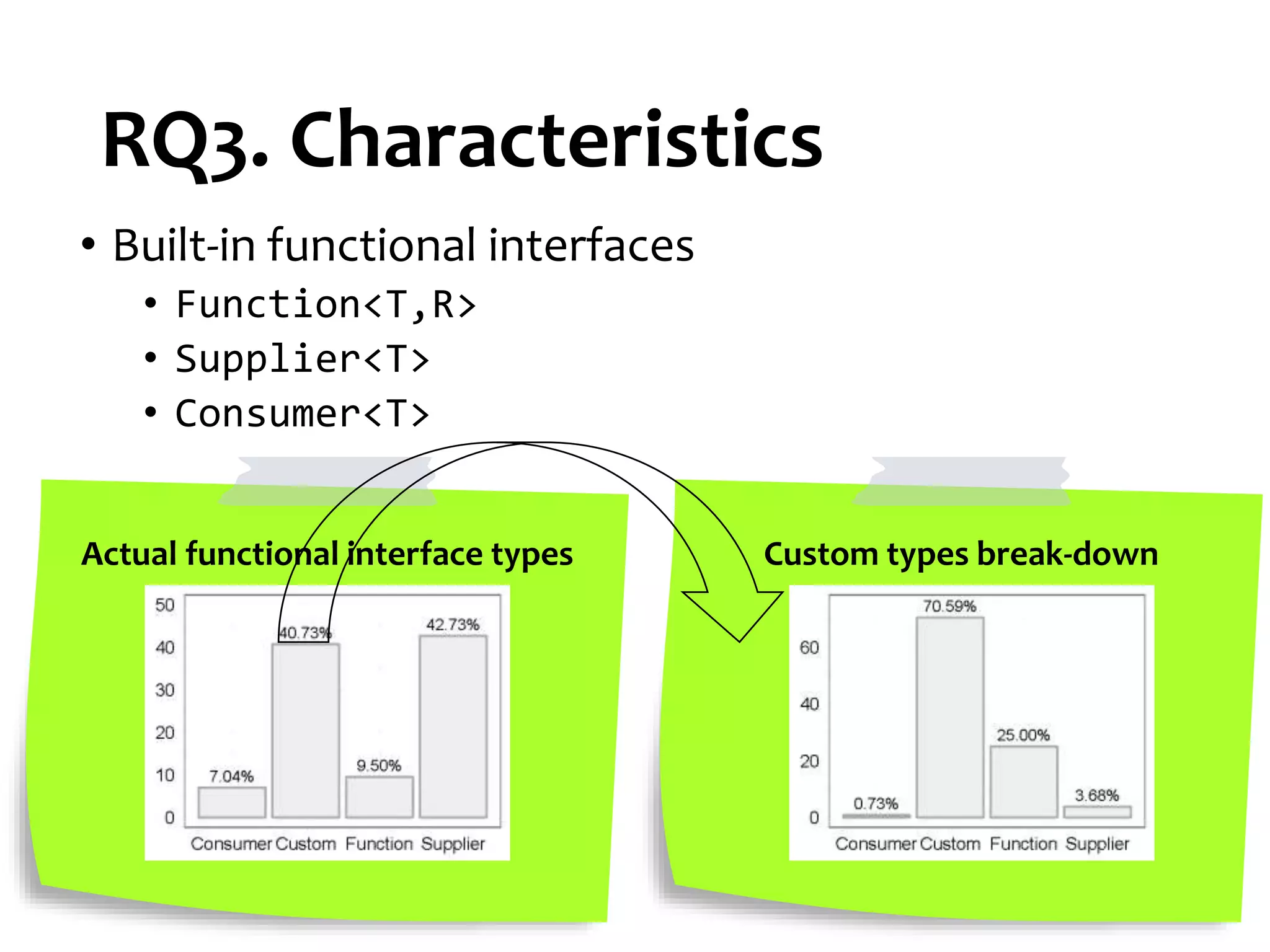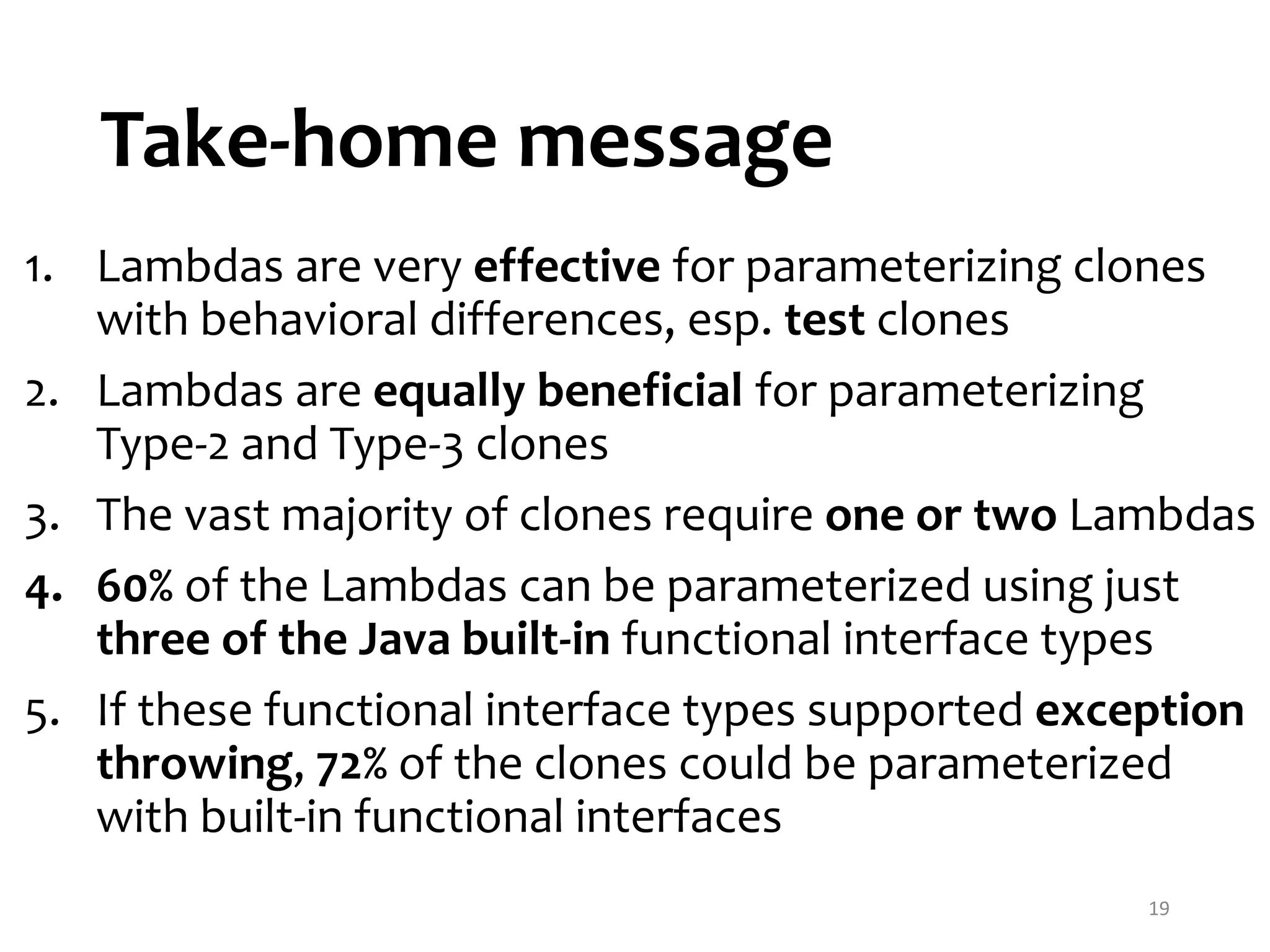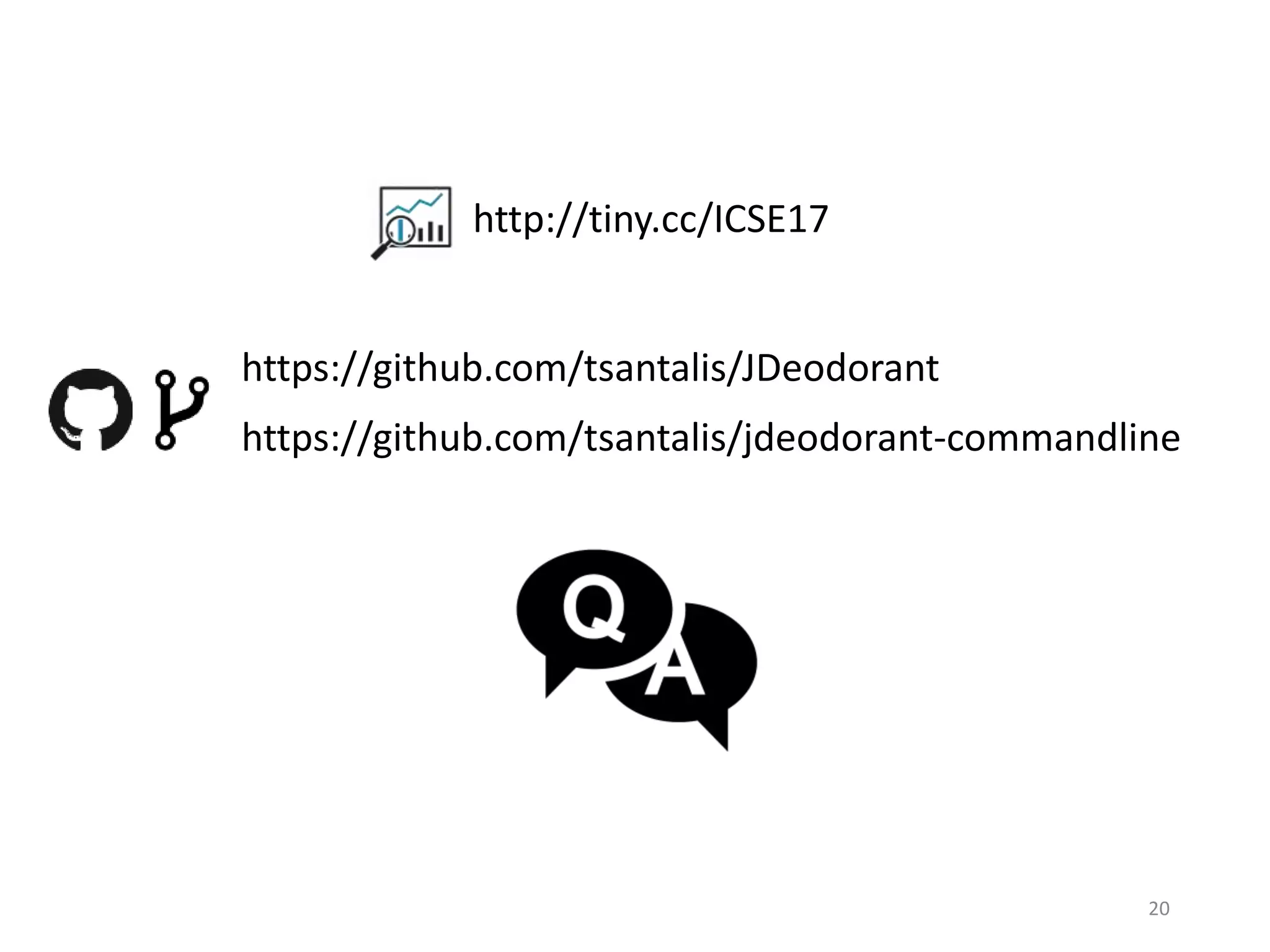The document discusses clone refactoring using lambda expressions based on the analysis of over 1 million clones across various projects. It highlights that 94% of the clones detected are type-2 or type-3, with a mere 14% being safely refactorable, and presents a method for assessing lambda refactorability. Key findings indicate that lambda expressions effectively parameterize clones with behavioral differences, particularly in test environments.
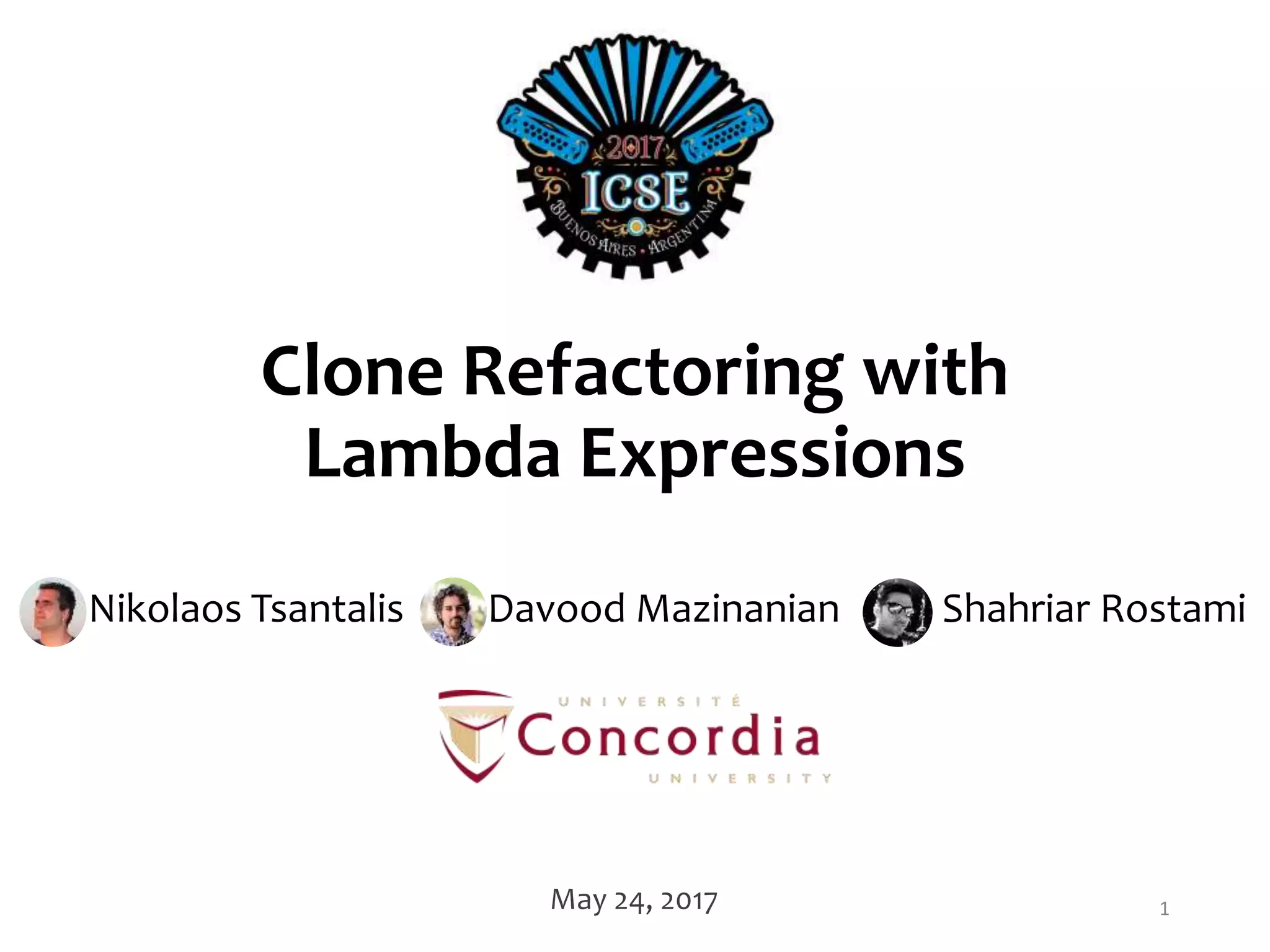
![Motivation • Studied 1M+ clones detected by 4 clone detectors in 9 open-source projects [Tsantalis et al., TSE 2015] • 94% of the clones are either Type-2 or Type-3 • Out of those, only 14% could be safely refactored 2](https://image.slidesharecdn.com/icse2017-170529012143/75/Clone-Refactoring-with-Lambda-Expressions-2-2048.jpg)
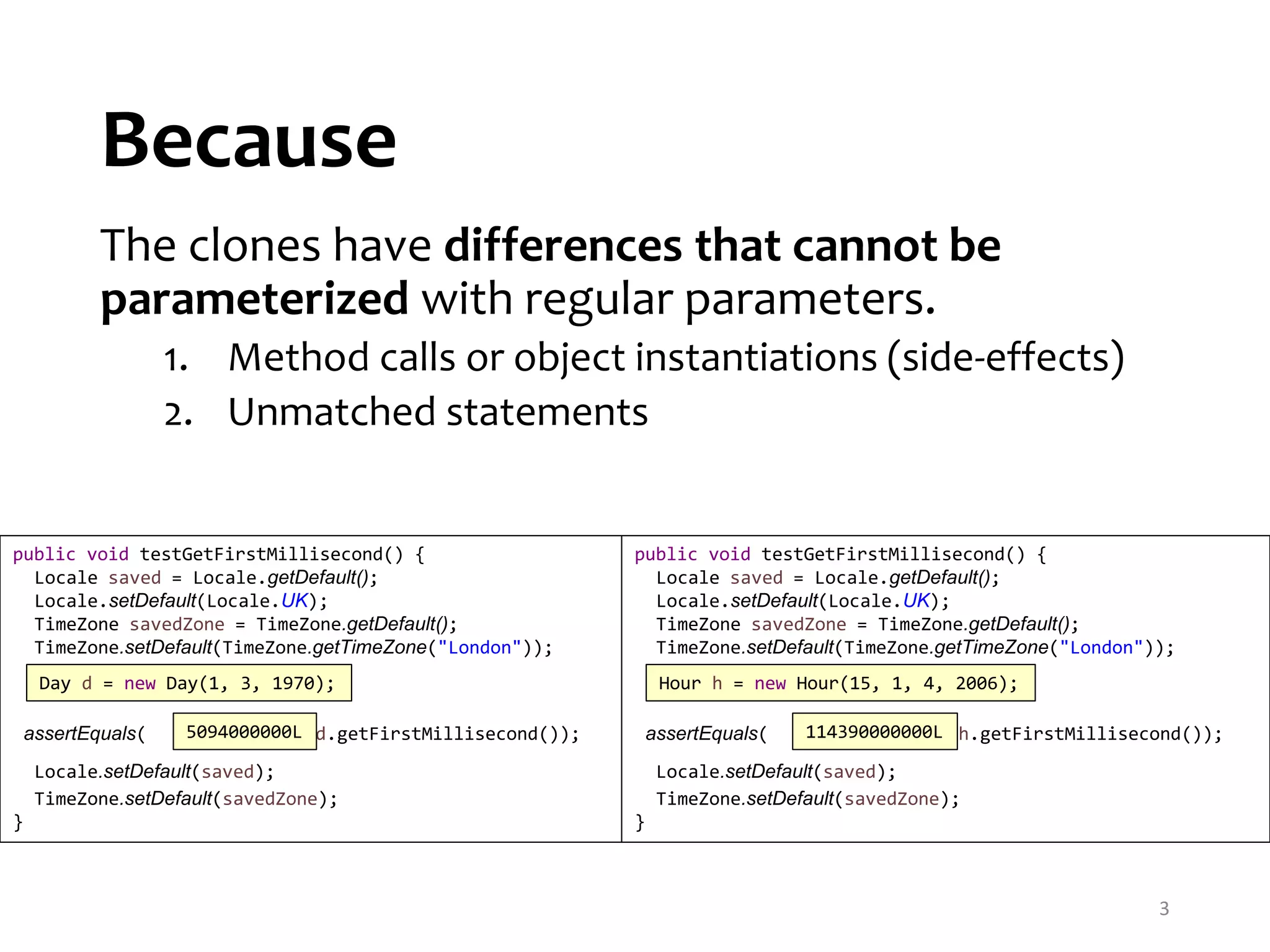
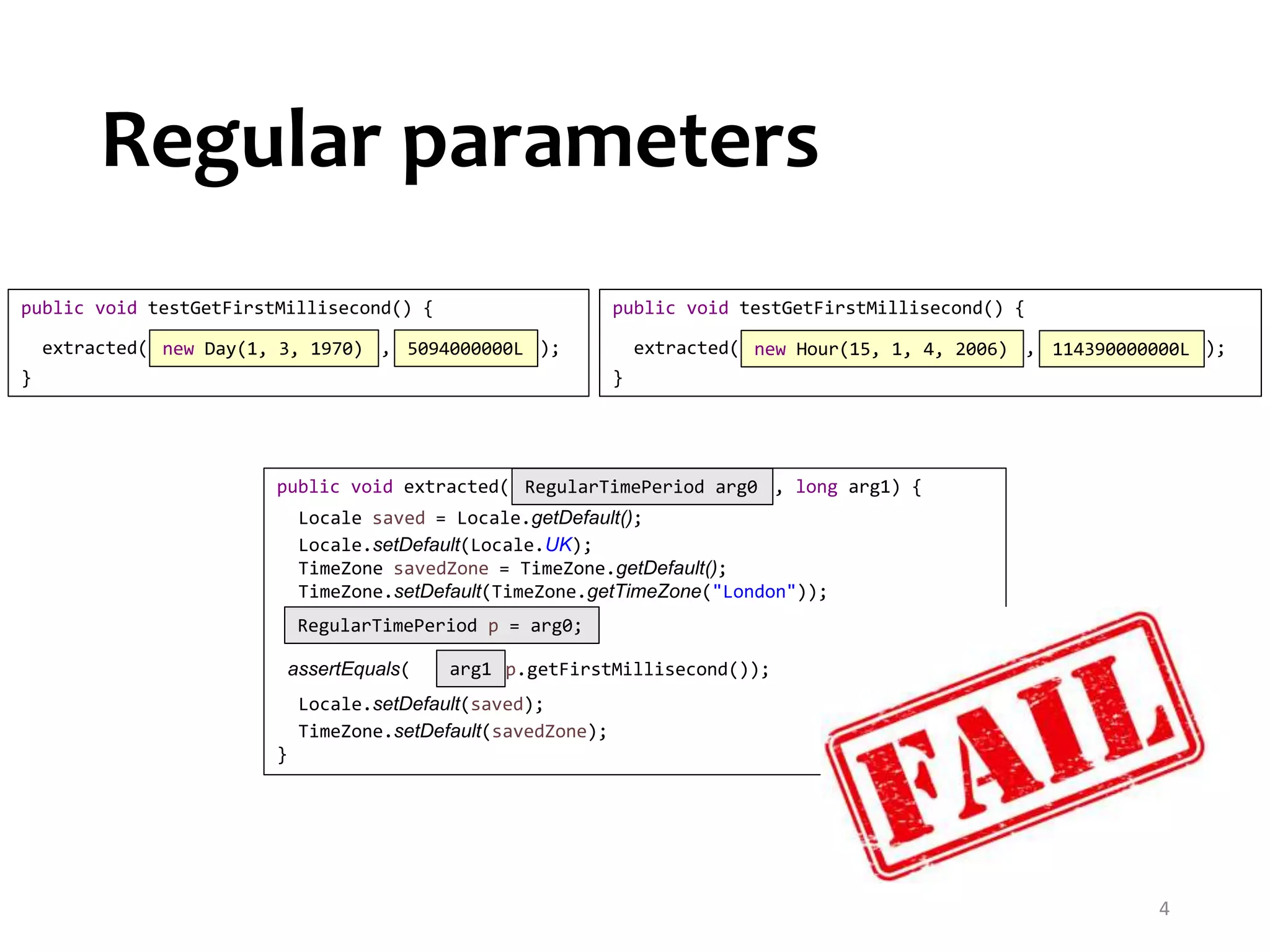
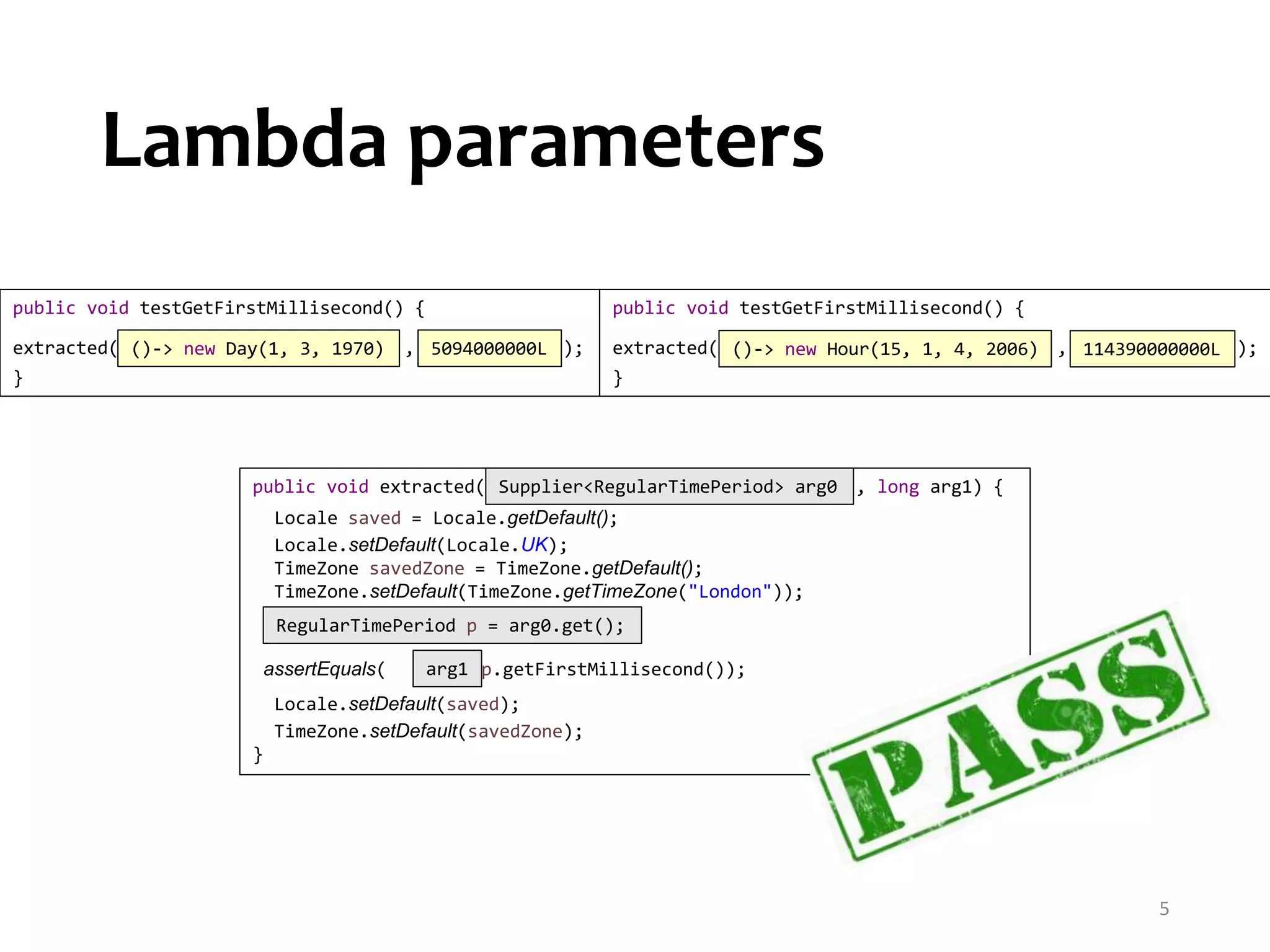
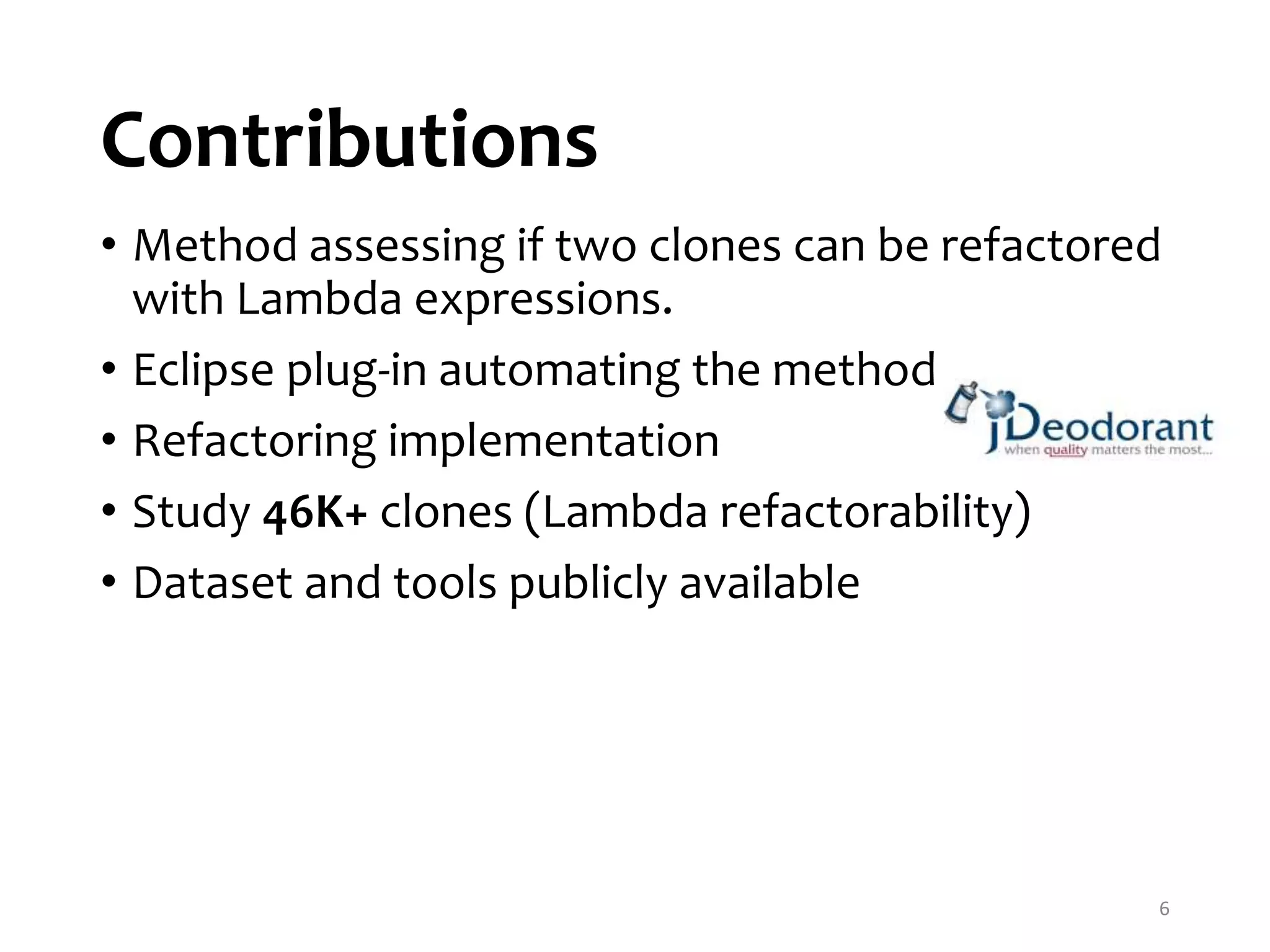
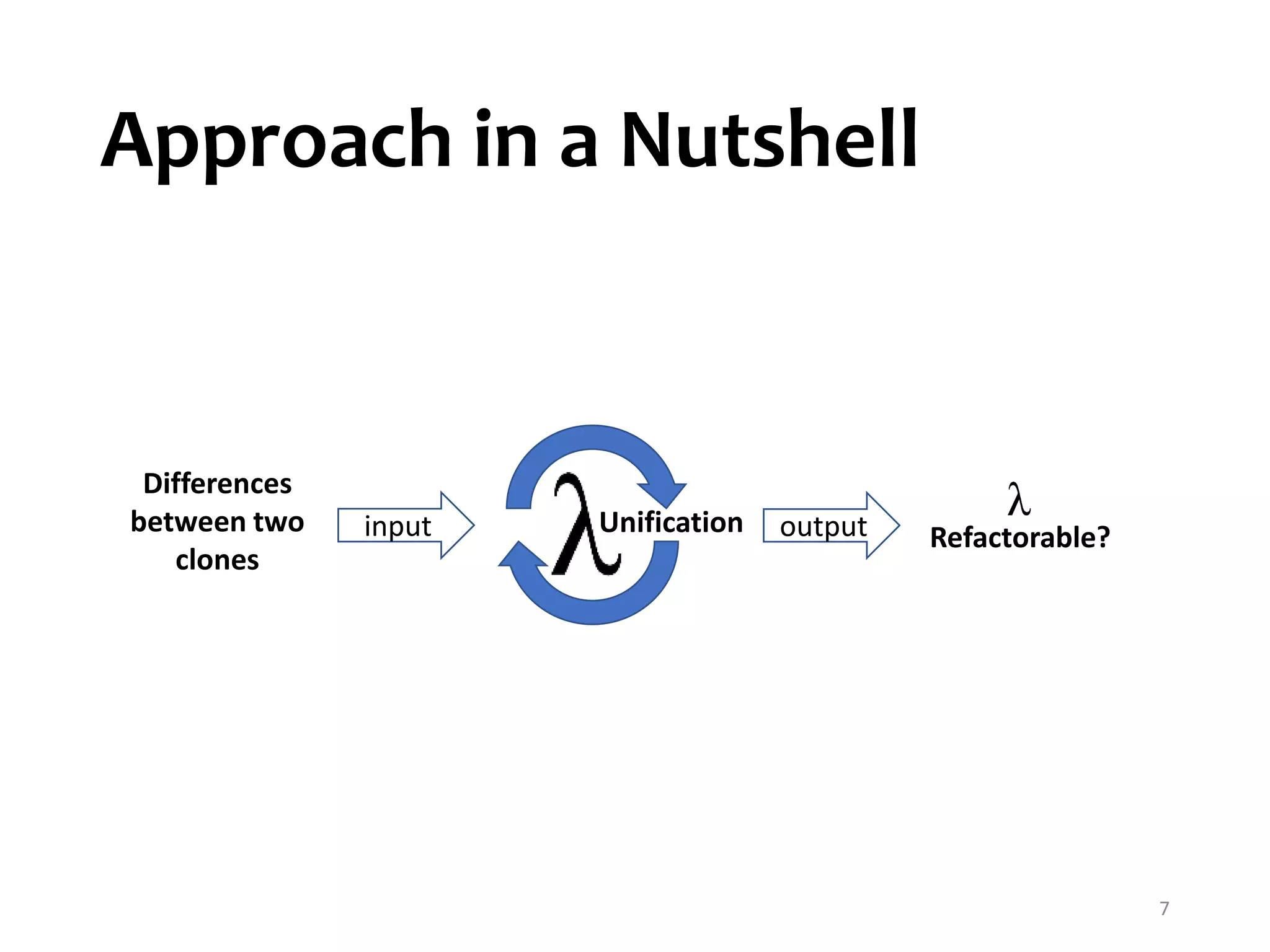
![public int read() throws IOException { if (!getInitialized()) { initialize(); setInitialized(true); } int ch = -1; if (line != null) { ch = line.charAt(0); if (line.length() == 1) { line = null; } else { line = line.substring(1); } } else { final int size = regexps.size(); for (line = readLine(); line != null; line = readLine()) { boolean matches = true; for (int i = 0; matches && i<size; i++) { matches = } if (matches ^ isNegated()) { break; } } if (line != null) { return read(); } } return ch; } public int read() throws IOException { if (!getInitialized()) { initialize(); setInitialized(true); } int ch = -1; if (line != null) { ch = line.charAt(0); if (line.length() == 1) { line = null; } else { line = line.substring(1); } } else { final int size = contains.size(); for (line = readLine(); line != null; line = readLine()) { boolean matches = true; for (int i = 0; matches && i<size; i++) { matches = } if (matches ^ isNegated()) { break; } } if (line != null) { return read(); } } return ch; } 8 String containsStr = (String)contains.elementAt(i); line.indexOf(containsStr)>=0; RegularExpression regexp = (RegularExpression)regexps.elementAt(i); Regexp re = regexp.getRegexp(getProject()); re.matches(line); Input [Tsantalis et al., TSE 2015]](https://image.slidesharecdn.com/icse2017-170529012143/75/Clone-Refactoring-with-Lambda-Expressions-8-2048.jpg)
